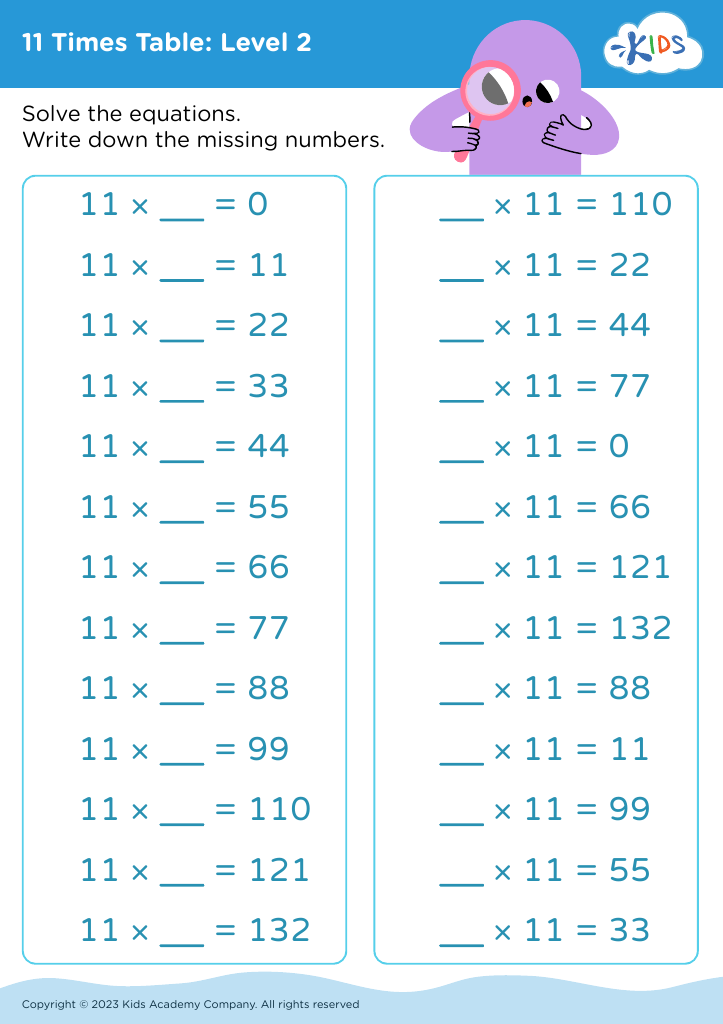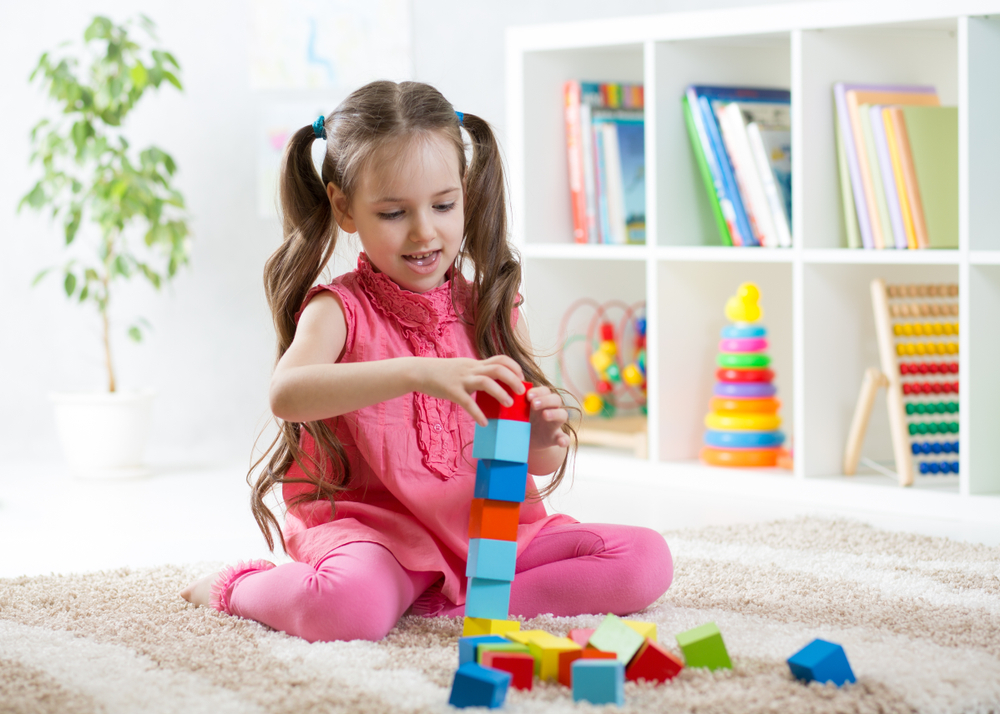Enhancing calculation skills Normal Math Worksheets for Ages 3-9
6 filtered results
-
From - To
Welcome to our "Enhancing Calculation Skills Normal Math Worksheets" page! Tailored for children aged 3-9, our engaging worksheets are designed to make math fun and accessible. These resources focus on developing essential calculation skills, such as addition, subtraction, and number recognition. Each worksheet features colorful illustrations and playful activities that encourage active learning. By incorporating these exercises into your child’s daily routine, you can help foster a strong mathematical foundation, boost confidence, and improve problem-solving abilities. Explore our diverse collection and watch as your young learners thrive and enjoy the journey of mastering math skills!
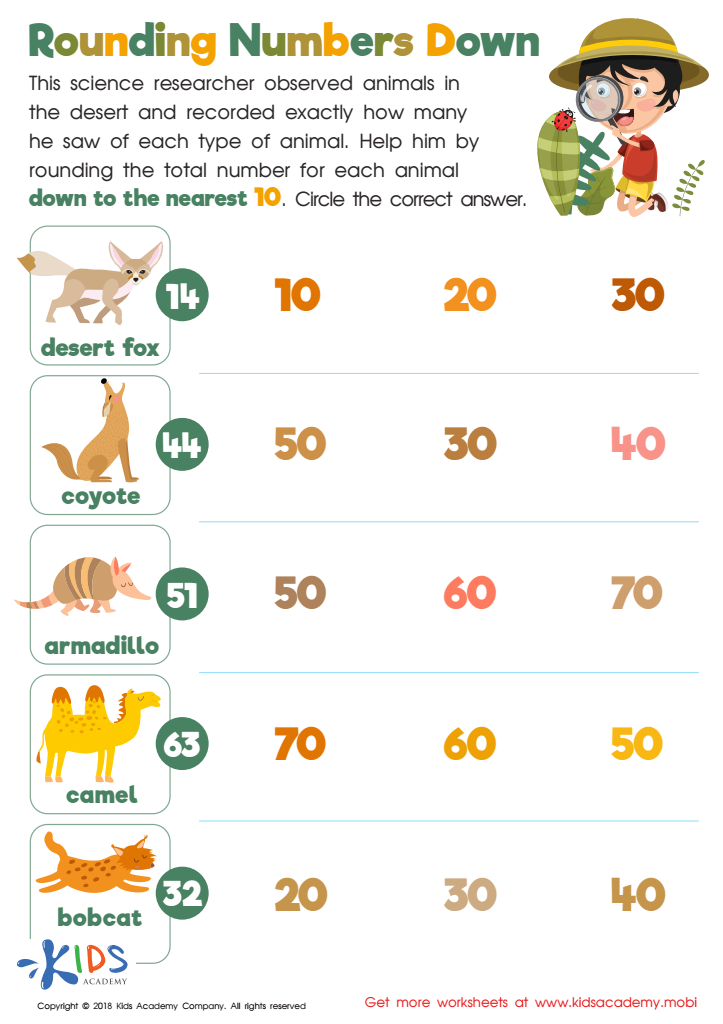

Rounding Numbers Down Worksheet
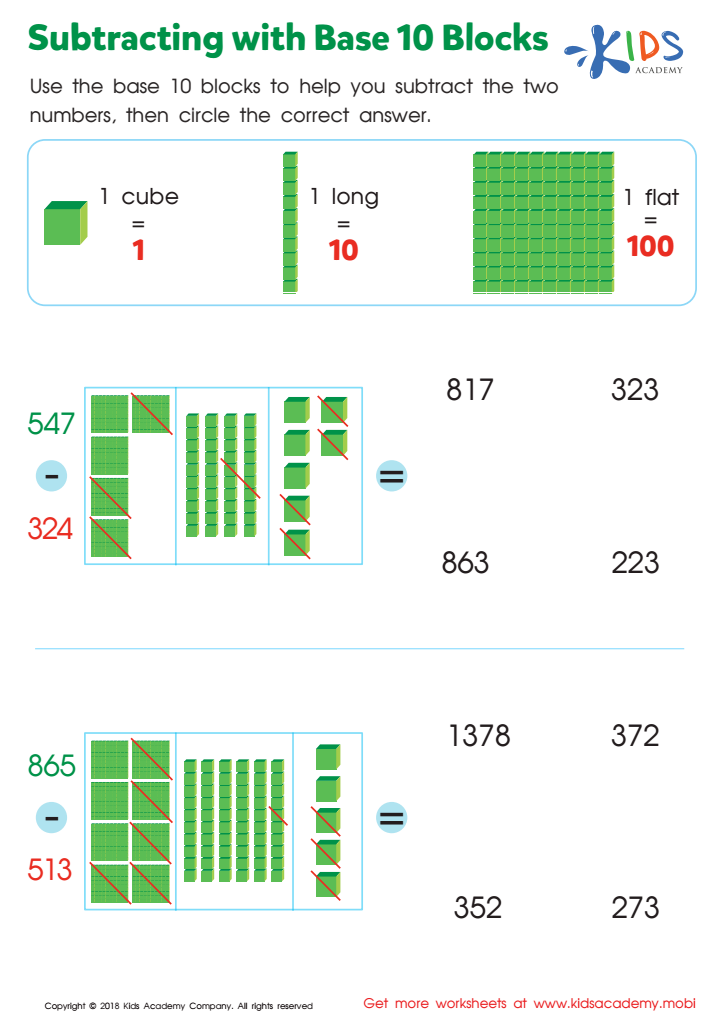

Subtracting with Base 10 Blocks Worksheet
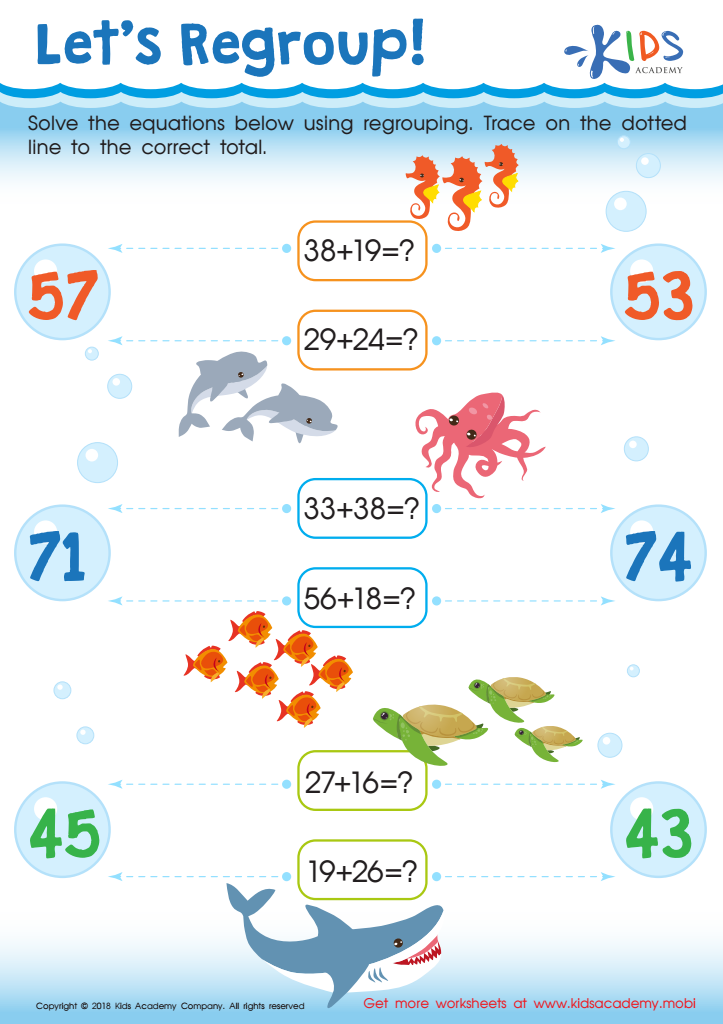

Let's Regroup! Worksheet
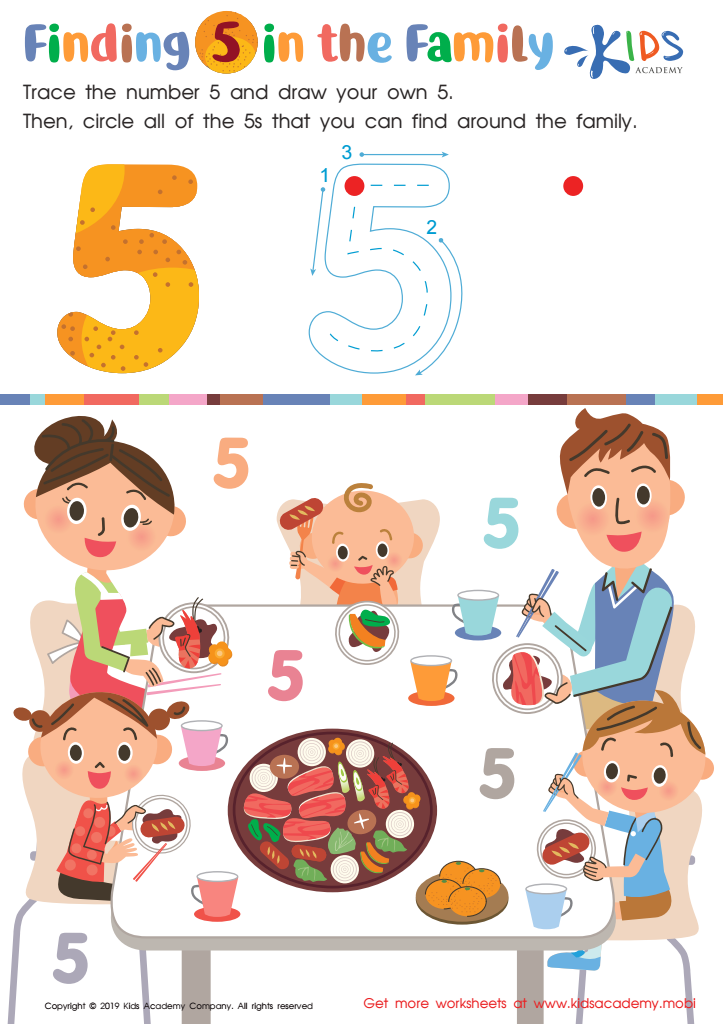

Finding 5 in the Family Worksheet
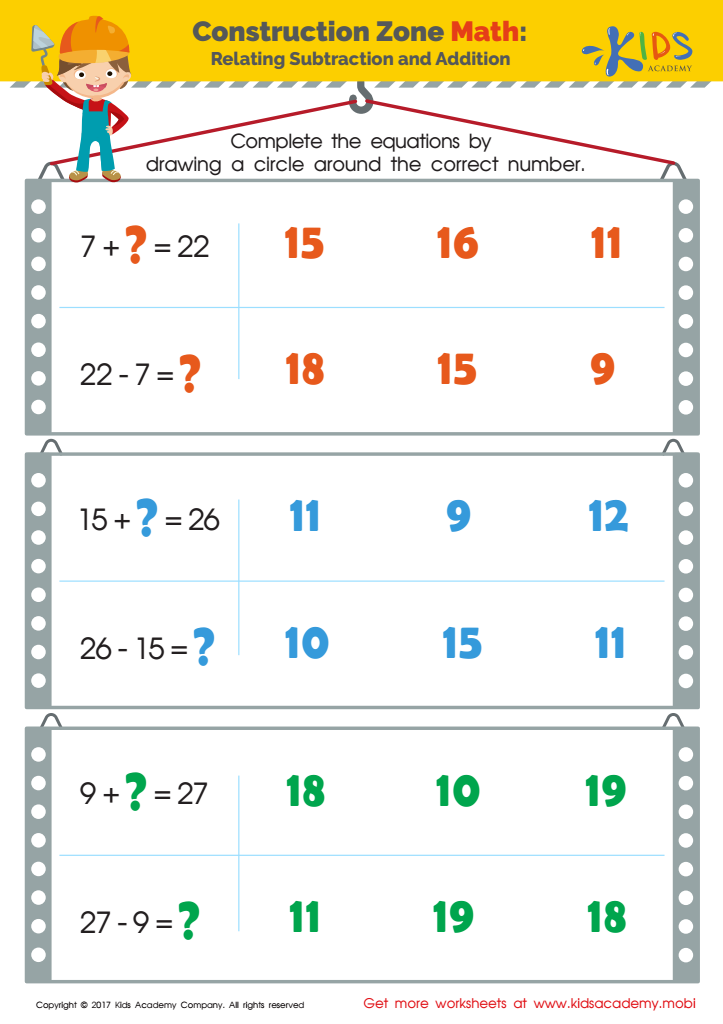

Related Addition and Subtraction Facts Worksheet
Enhancing calculation skills in young children, particularly those aged 3-9, is crucial for numerous reasons that extend into their academic and everyday lives. At this formative stage, children's brains are developing rapidly, and exposure to mathematical concepts lays the foundation for future learning. Calculation skills help children understand basic arithmetic, proportions, and problem-solving techniques, which are essential for their academic curriculum as they progress through school.
Moreover, these skills boost cognitive development, enhancing critical thinking and analytical capabilities. Early proficiency in calculation also supports confidence in math, aiding in the reduction of math anxiety that can arise later in their education. Engaging children with fun, interactive activities strengthens their love for learning and nurtures curiosity.
Parents and teachers should collaborate to create supportive environments in and out of the classroom. Incorporating math into daily routines through games, cooking, or shopping reinforces these concepts naturally. Furthermore, strong calculation skills promote essential life skills, encouraging independence as children encounter real-world situations requiring quantitative reasoning. By prioritizing mathematical development early on, parents and teachers equip children with the tools they need to navigate their futures successfully—both academically and in day-to-day life.
 Assign to My Students
Assign to My Students
